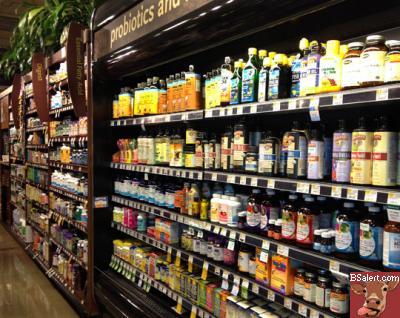|
|
Top Stores Caught Selling Phony Herbal Supplements
Posted by Pile
(14747 views) |
  |
 A warning to herbal supplement users: Those store-brand ginkgo biloba tablets you bought may contain mustard, wheat, radish and other substances decidedly non-herbal in nature, but they’re not likely to contain any actual ginkgo biloba. A warning to herbal supplement users: Those store-brand ginkgo biloba tablets you bought may contain mustard, wheat, radish and other substances decidedly non-herbal in nature, but they’re not likely to contain any actual ginkgo biloba.That’s according to an investigation by the New York State attorney general’s office into store-brand supplements at four national retailers — GNC, Target, Walgreens and Wal-Mart. All four have received cease-and-desist letters demanding that they stop selling a number of their dietary supplements, few of which were found to contain the herbs shown on their labels and many of which included potential allergens not identified in the ingredients list. | |
“Contamination, substitution and falsely labeling herbal products constitute deceptive business practices and, more importantly, present considerable health risks for consumers,” said the letters, first reported today by the New York Times. The tests were conducted using a process called DNA barcoding, which identifies individual ingredients through a kind of “genetic fingerprinting.” The investigators tested 24 products claiming to be seven different types of herb — echinacea, garlic, gingko biloba, ginseng, saw palmetto, St. John’s wort and valerian root. All but five of the products contained DNA that was either unrecognizable or from a plant other than what the product claimed to be. Additionally, five of the 24 contained wheat and two contained beans without identifying them on the labels — both substances are known to cause allergic reactions in some people. Of the four retailers, Wal-Mart was the worst offender: None of its six supplements that were tested was found to contain purely the ingredient advertised. Target’s supplements were the least misleading of the lot — though that isn’t saying much, since tests on six of the brand’s products resulted in only one unqualified positive. Two of Target’s other supplements contained DNA from other plants alongside their purported ingredients, while the remaining three tested negative. Harvard Medical School assistant professor Pieter Cohen, who is an expert on supplement safety, told the New York Times that the test results were so extreme he found them hard to accept. He suggested that the manufacturing process may have destroyed some of the ingredients’ DNA, rendering the DNA barcode test ineffective. On the other hand, he said, “if this data is accurate, then it is an unbelievably devastating indictment of the industry.” This investigation is just the latest in a series of blows against the dietary supplement industry. Supplements are not considered food or drugs, so they have long been only loosely regulated. Federal guidelines require companies to ensure that their products are safe and accurately labeled, but the FDA has little power to enforce that rule. A 2012 paper published in the Journal of the American Medical Association warned that this lack of regulation of the supplement industry could lead to “adverse events.” In the past five years, tainted supplements have been associated with kidney failure, hepatitis and other problems. Also in 2012, the Department of Health and Human Services released a report saying that supplements’ claims about their structure and function often lack scientific support. HHS recommended that the FDA seek “explicit statutory authority to review substantiation for structure/function claims” — essentially, it should subject the health claims made by supplement manufacturers to the same kind of scrutiny that drugs must undergo. The New York attorney general’s letters also cited a 2013 Canadian study of 44 common supplements, in which one-third of herbal supplements that were tested contained no trace of the plant advertised on the bottle. The Canadian study “alerted the dietary supplement industry to the fact that it is not providing the public with authentic products without substitution, contamination or fillers. It is disappointing that over a year later the attorney general’s researcher reached similar conclusions,” the letters chastised, sounding like a frustrated parent. | |
Details | |
| People have DIED--thanks congress Posted by wizeGurl on 2015-02-10 09:35:33 |
| Thanks to a law passed by a congressman who believed strongly in the power of supplements, they do not have to undergo any kind of inspection, or prove that they are safe. They also don't have to prove that they are effective in any way. Only when people start dropping dead (or experiencing other serious reactions across the country) is the FDA allowed to get involved, and that usually takes a few years. Read the Wikipedia entry for ephedra to see one such story of the industry fighting a ban while people died. I think the FDA should be able to demand proof of ingredients and safety. Let the consumers continue to take ineffective supplements if they want to--as long as it doesn't kill or disable them. |
| 1 Article displayed. |


 Bumper Sticker Store
Bumper Sticker Store



